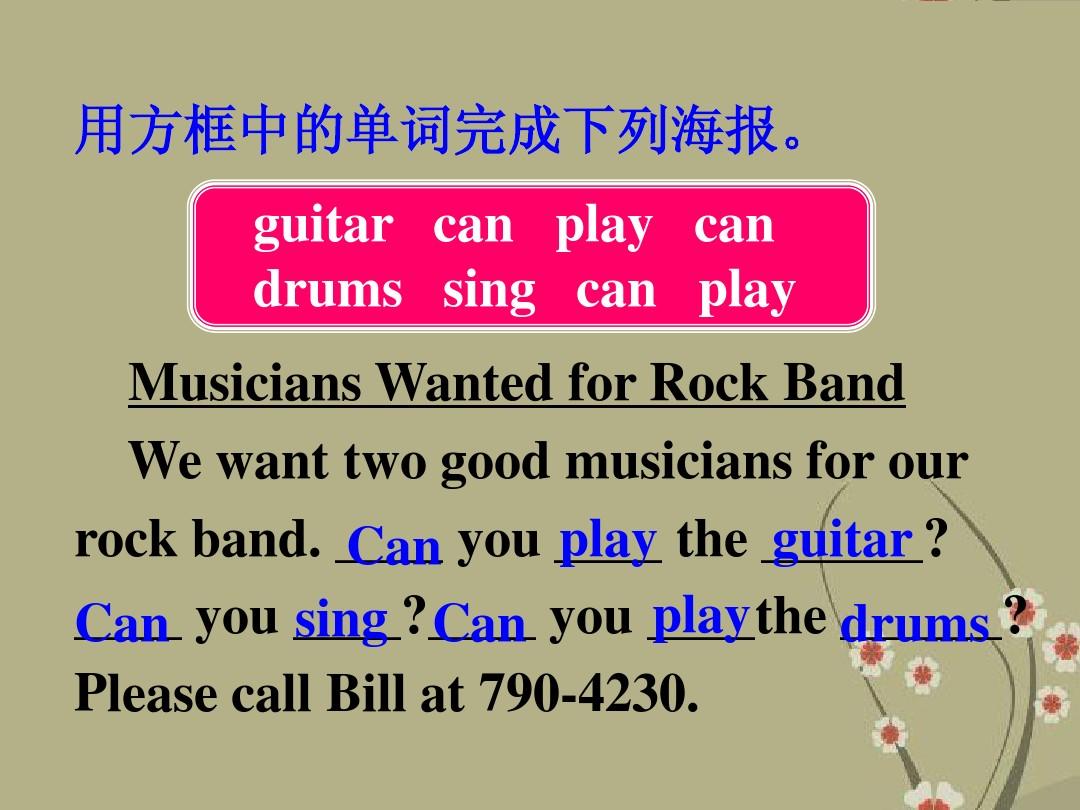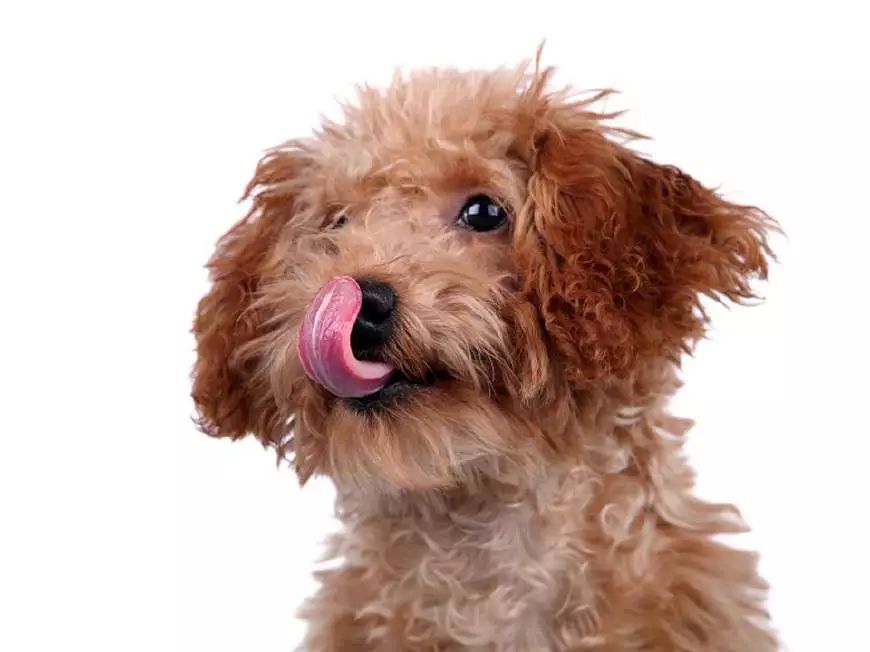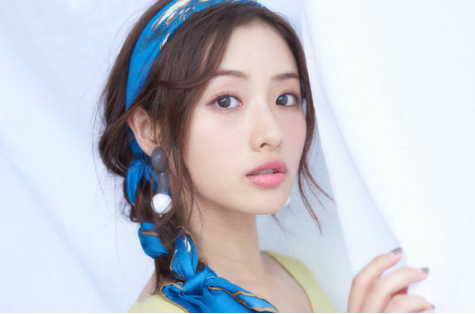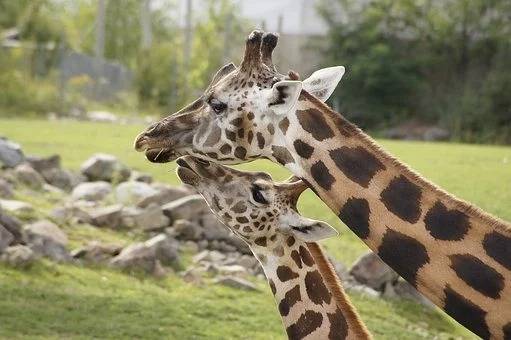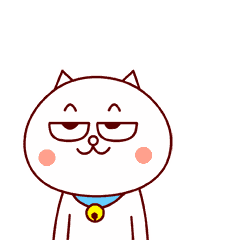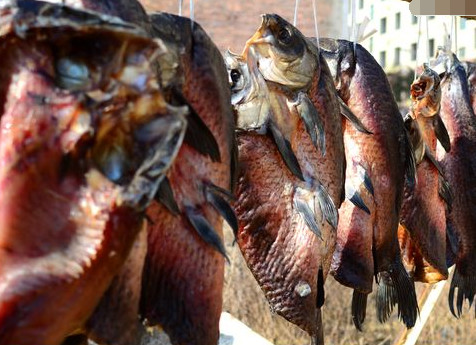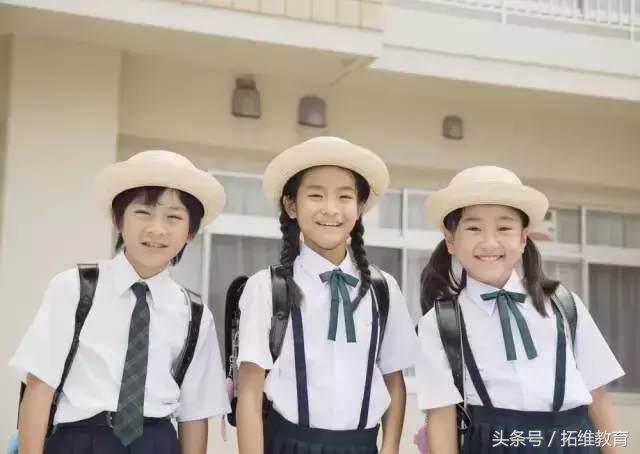春节快到了,怎样向外国的朋友们介绍这个中国人心中最重要的节日呢?又如何向他们介绍春节的习俗,从而让他们融入到中国新年的喜庆氛围中呢?今天浪哥为各位整理了一些如何用英语简单介绍春节的干货,下次再见到你的外国朋友们,就不怕没什么好说的啦~
我们的目标是:让全世界都知道春节!
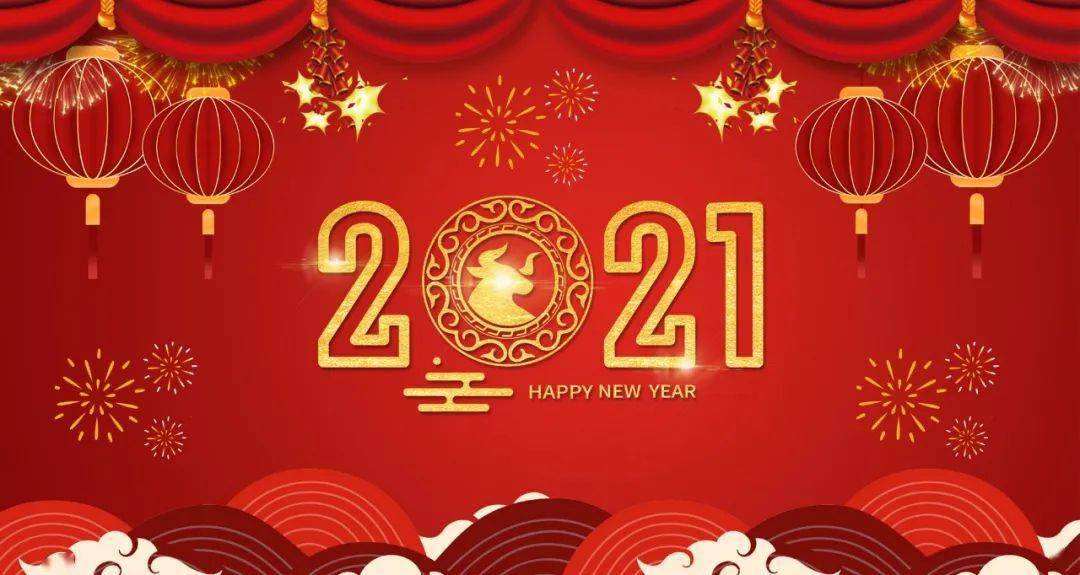
Spring Festival (春节)
下面这个5分钟英文视频会让你介绍得更加地道和全面
牛年该用cow还是bull还是ox?我们来从下面这个关于12生肖的TED演讲里面来找答案吧!
春节是什么?
What is Spring Festival?
The Spring Festival is the most important festival for the Chinese people and is when all family members get together, just like Christmas in the West.
The Spring Festival falls on the 1st day of the 1st lunar month, often one month later than the Gregorian calendar. It originated in the Shang Dynasty from the people's sacrifice to gods and ancestors at the end of an old year and the beginning of a new one.
Strictly speaking, the Spring Festival starts every year in the early days of the 12th lunar month and will last till the mid 1st lunar month of the next year. Of them, the most important days are Spring Festival Eve and the first three days. Most people will have a week off, thus, this time is known as golden week.
春节,又叫农历新年,是中国民间最隆重、最热闹的一个节日,是举家欢庆团团圆圆的大好时节,就像西方的圣诞节一样。春季是每年农历正月初一,通常比公历新年要晚一个月。它起源于殷商时期年头岁尾的民间祭祖活动。
严格来讲,春节不只是一天的庆祝,而是从农历的12 月底到新年的正月十五,不过最重要的几天当属除夕夜和新年头三天。春节是法定假日,大家一般都会放七天假,又叫做黄金周。
春节传统风俗
Spring Festival Traditions
1Spring Cleaning
大扫除
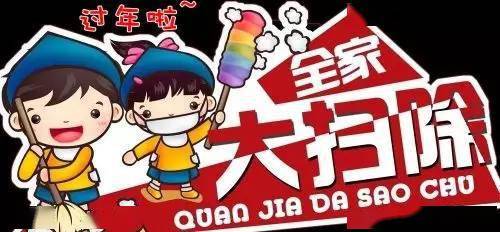
“Dust”(尘)is homophonic with “chen”(陈)in Chinese, which means old and past. In this way, “sweeping the dust” before the Spring Festival means a thorough cleaning of houses to sweep away bad luck in the past year. Chinese People believe that in order to receive the new luck, you have to swipe the bad luck. All the cleaning has to be done before the end of New Year’s Eve, that’s what Chinese people always called “Ci Jiu Ying Xin”: saying goodbye to the old and welcoming the new.
“Dust” 与“尘”是谐音(尘在汉语中的意思是旧的和过去的)。这样,“在春节前扫尘”是指彻底清洁房屋扫除过去闰年的厄运。勤劳勇敢的中国人民相信,只有把旧的坏运气赶走了,才能迎接美好新生活。所有的大扫除必须要在除夕夜之前完成,干干净净整整齐齐迎接新年,就是我们常说的辞旧迎新。
2Paper Cut
贴窗花
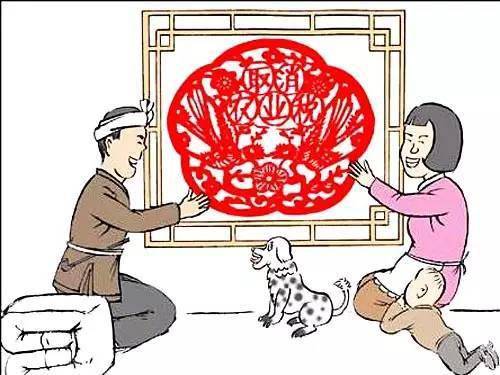
After the thoroughly clean up, people will paste paper-cut decorations on the windows and doors. Paper-cuts, usually with auspicious patterns, give a happy and prosperous atmosphere of the Festival and express the good wishes of Chinese people looking forward to a good life. It is common for Chinese to paste the character “fu(福)”, big and small, on walls, doors and doorposts around the houses. “Fu(福)” shows people’s yearning toward a good life. Some people’s yearning toward a good life. Some people even invert the character “Fu(福)” to signify that blessing has arrived because “inverted” is a homonym for “arrive” in Chinese.
在大扫除之后,大家会在家中门窗上贴上窗花。通常带有吉祥图案的窗花,传递节日喜庆和执闹的气氛和表达中国人期待幸福生活的美好愿望。除了贴窗花,在墙上,门上和房子周围的门框上巾大小福字是中国人表达对美好生活渴望的普遍习俗。一些人甚至倒贴福字来表示福到了,因为在汉语中“倒”是“到”的谐音。
3Spring Couplet
贴春联
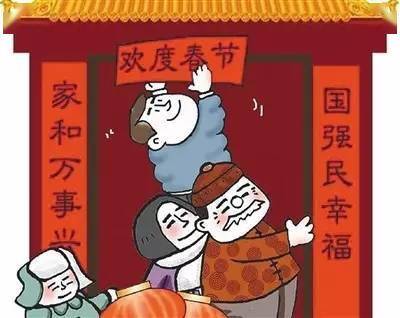
“The Spring Couplet”, also called “couplet” and “a pair of antithetical phrases”, is a special form of literature in China. The Spring Couplet is composed of two antithetical sentences on both sides of the door and a horizontal scroll bearing an inion, usually an auspicious phrase, above the gate. Whether the family is rich or poor, educated or ignorant, everyone must put on the Spring Couplet to symbolize the hopes for the coming new year.
“春联”或“对联”对立在中国是一种特殊的文学形式。春联是由贴在门口两侧两组对仗的句子组成,在门上面的横批通常是一个吉祥的短语。不论是大富大贵还是贫困潦倒,学富五车还是乡野村夫,每家每户都要在新年时门前贴春联,以寄托对新年的美好祝愿。
4Family Reunion Dinner
年夜团圆饭
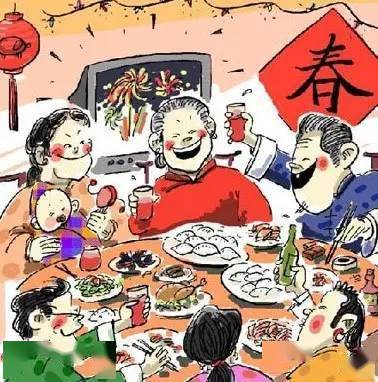
The Spring Festival is a time for the Chinese to have family reunion, on Chinese New Year’s Eve (Chu Xi), the whole family must sit at the table to eat the New Year’s Supper together. This meal is usually made from scratch with the entire family working together, and this meal is usually the most sumptuous meal of the year. In the New Year’s Supper, it is essential that some dishes contain the family wishes for the New Year.
春节是一个合家团圆的日子,在除夕夜,全家都合家团圆一起共享除夕大餐。这顿饭通常是全家总动员,每个人都要参与,也通常是一年之中最丰盛美味的一餐。在年夜饭中,有一些美好象征意义的美食是必备的
年糕,or the New Year’s Cake, is very common in Southern China, it Is made of sticky rice. In Chinese, niangao sounds like “getting higher year by year”. In Chinese people’s mind, the higher you are, the more prosperous your business is.
年糕在中文的发音里意味着年年高升。因此中国人总认为,如果一个人地位较高,其财富就越多。
饺子,or the stuffed Dumpling, is a very common Northern Chinese Dish, Chinese dumplings look like silver ingots. Legend has it that the more dumplings you eat during New Year celebration, the more money you can make in the New Year. Ehen making these dumplings, coins and pennies are usually put into selected few, those lucky family members that happen to eat those special dumplings are believed to have special good fortune in the upcoming year.
饺子的开关酷似一个元宝,并且在传统观念里认为饺子吃得越多,那么来年钱就挣得越多。在做饺子的时候,人们喜欢在一些饺子里放上硬币,吃到硬币的幸运儿就意味着来年会有特殊的好运。
5Firecrackers
放鞭炮
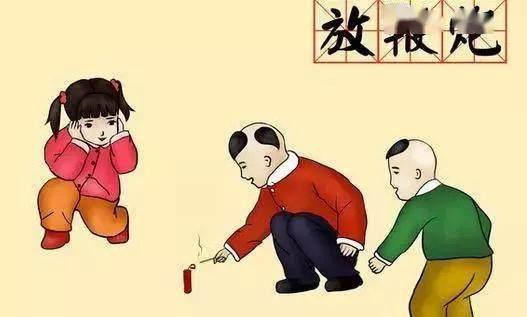
Lighting Firecrackers used to be one of the most important customs in the Spring Festival celebration. However, concerning the danger and the negative noises that lighting firecrackers may bring, the government has banned this practice in many major cities. But people in small towns and rural areas still hold to this traditional celebration. Right as the clock strike 12 o’ clock midnight of New Year’s Eve, cities and towns are lit up with the glitter from fireworks, and the sound can be deafening.
放鞭炮曾是春节庆祝活动中最重要的习俗之一。然而,担心燃放鞭炮可能会带来危险和烦人的噪音,政府已在许多大城市下令禁止燃放鞭炮。但在小城镇和地区的人们仍然坚持这种传统的庆祝活动。除夕夜一旦撞响午夜12点钟,城市和乡镇都被烟花的闪闪光芒映亮,鞭炮声震耳欲聋。
6Red Packet/ Lucky Money
红包/压岁钱
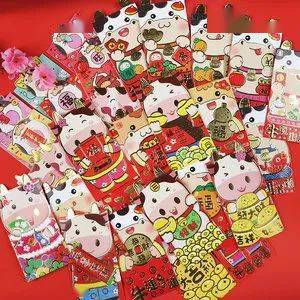
Children love Spring Festival because they can receive red packet! A red packet is simply a red envelope with lucky money in it, which symbolizes luck and wealth. In traditional Chinese cultural, red is considered a lucky color, red packet is believed to ward off evial spirits and to bring good fortune to the receiver. Traditionally, older generations give the red packet to the younger generation. Nowadays, this practice extends to close friends, neighbors, and even some companies give away year-end bonus in the red packets.
孩子们最爱过春节,因为春节有红包!红包就是在一个红包的小红包里装上压岁钱,寓意为幸运和财富。在中国传统文化中,红色是幸运色,大家相信红包能帮人赶走霉运, 带来幸福富贵。在过去,都是长辈给晚辈红包,但是现在这个概念已经扩大到朋友之音,有些公司也会把年终奖金放到红包里面发放。
在这欢乐的时节,浪哥给你我最真的祝福和亲切的思念,愿你新的一年比往年更璀璨!
In the season of joy I present my sincere wishes and kind thoughts. May the kind of New Year outshine all the rest.
新
春
佳
节
1. 传统中国节日:traditional Chinese festival
2. 农历:lunar calendar
3. 腊八节:Laba Festival
4. 小年:Little New Year
5. 除夕:Lunar New Year's Eve
6. 春节:the Spring Festival
7. 正月初一:the lunar New Year's Day
8. 元宵节:the Lantern Festival
9. 正月:the first month of the lunar year
10. 二月二:Dragon Heads-raising Day
传
统
习
俗
11. 喝腊八粥:eat Laba porridge
12. 扫尘:sweep the dust
13. 扫房:spring cleaning
14. 祭灶:offer sacrifices to the God of Kitchen
15. 守岁:staying up
16. 拜年:pay a New Year's call
17. 祭祖:offer sacrifices to one's ancestors
18. 祭财神:worship the God of Wealth
19. 春联:Spring Festival couplets
20. 贴倒福:paste the Chinese character "Fu" upside down
21. 去晦气:get rid of the ill-fortune
22. 辞旧岁:bid farewell to the old year
23. 兆头:omen
24. 禁忌:taboo
25. 烧香:burn incense
阖
家
团
圆
26. 吃团圆饭:have a family reunion dinner
27. 年夜饭:New Year's Eve dinner
28. 全家团圆:family reunion
29. 办年货:do Spring Festival shopping
30. 敬酒:propose a toast
31. 穿新衣:wear new clothes
32. 红包:red envelops
33. 压岁钱:gift money;money given to children as a Lunar New Year gift
美
食
小
吃
34. 年糕:rice cake;New Year cake
35. 饺子:dumpling;Chinese meat ravioli
36. 汤圆:dumplings made of sweet rice
37. 八宝饭:eight-treasure rice pudding (steamed glutinous rice with bean paste, lotus seeds, preserved fruit, etc.)
38. 什锦糖:assorted candies
39. 糖莲子:candied lotus seed
40. 花生糖:peanut candy
41. 蜜冬瓜:candied winter melon
42. 瓜子:red melon seeds
43. 金桔:cumquat
44. 红枣:red dates
45. 春卷:spring roll
46. 冰糖葫芦:candied haws on a stick
47. 驴肉火烧:donkey burger
48. 腊肠:Chinese sausage
49. 米酒:rice wine
50. 腊肉:preserved meat
51. 糖板栗:sugar chestnut
52. 四喜丸子:four-joy meatballs
民
间
艺
术
53. 泥人:clay figure
54. 皮影戏:shadow puppetry
55. 木偶戏:puppet show
56. 刺绣:embroidery
57. 剪纸:paper-cut
58. 中国结:Chinese knot
59. 年画:New Year painting
60. 吹糖人:sugar-figure blowing
61. 舞龙:dragon dance
62. 舞狮:lion dance
63. 秧歌:Yongko dance;rural folk dance
64. 灯笼:lantern
曲
艺
表
演
65. 戏曲:traditional opera
66. 折子戏:opera highlights
67. 相声:comic dialogue;cross talk
68. 小品:skits;sketch
69. 口技:vocal imitations;ventriloquism
70. 杂技:aTcTTlcrobatic performance
71. 马戏:circus performance
72. 京韵大鼓:drum song of Peking
73. 踩高跷:walk on stilts
74. 杂耍:variety show;vaudeville
娱
乐
活
动
75. 打麻将:play mahjong
76. 庙会:Temple Fair
77. 春节联欢晚会:Spring Festival gala
78. 灯会:exhibit of lanterns
79. 送贺卡:sending New Year's greeting cards
80. 理发:have a haircut
81. 放烟花:set off fireworks
82. 放鞭炮:set off firecrackers
83. 灯谜:riddles written on lanterns
各
路
神
仙
84. 门神:the God of Door
85. 灶神:the God of Kitchen
86. 财神:the God of Wealth
87. 土地爷:the God of Land
88. 火神:the God of Fire
89. 喜神:the God of Happiness
90. 福禄寿三星:the three gods of fortune, prosperity and longevity
91. 八仙:the Eight Immortals
其
他
92. 生肖、属相:Chinese zodiac
93. 牛年:the Year of the Ox
94. 微信红包:WeChat red envelope
95. 年:Nian;Year monster
96. 立春:the Beginning of Spring
97. 24节气:24 Solar Terms
98. 本命年:the animal year in which one was born
99. 春运:Spring Festival travel rush
新
禁
年
忌
Dos
Wish everyone you meet a happy New Year by saying “gong xi fa cai”, which translates to “Have a happy and prosperous New Year!”
对每一个你遇到的人道一声“恭喜发财”,翻译成英文就是“在新的一年里拥有幸福繁荣的生活”。
Wear articles of red clothing because red symbolizes luck.
穿红色布料做成的饰品,因为红色昭示着幸运;
Eat vegetarian food because it’s not good to see blood.
吃素食,因为见血是不吉//www.58yuanyou.com利的。
Buy new trousers because the Chinese word for trousers isTcTTl “fu”, (Chinese homonym for wealth) .
买新裤子(衣服),因为汉语里裤子就是“服”,(在汉语里与财富的“富”谐音)。
Children should stay up as late as possible on New Year’s Eve for it is believed that the later they stay up, the longer their parents will live.
孩子应该在除夕之夜尽可能晚睡,因为据说他们睡的越晚,他们的父母越长寿。(熊孩子该高兴了~)
Visit family (especially those older than yourself) and friends to pass on your wishes on good fortune for the New Year. (plus kids and single people will receive lai-see lucky red packets full of money.
拜访亲戚朋友(尤其是比你年长的),传递你对他们来年幸福的美好祝愿(另外孩子和单身的人将会得到装满钱的幸运红包,称为“来喜”。)
Give two lai see to each child. Because happiness comes in two’s, do not just give one. This is your way of passing good luck to the next generation. Business owners also give lai see to employees and associates.
给每个孩子两份“来喜”(应该指钱是偶数的),因为好事成双,不要只给一份,这是你把祝愿传递给下一代的方法,企业主也要给员工和同事红包。
Dont's
Don’t wear white or black clothing, since they are the traditional colours of mourning.
不要穿白色或黑色服装,因为这是传统意义上丧事的颜色。
Don’t buy new shoes for the first month of the New Year, because the sound of shoe in Chinese is ‘hai’. “Hai” is similar to the sound of sighing, which Chinese believe is not a good way to start the year.
不要在新年的第一个月买新鞋,因为在汉语里鞋的发音是“孩”(好像是四川地区的发音), 它与叹息“唉”相近,中国人认为这不是新年伊始的好兆头。
Don’t wash your hair for the first three days of the New Year, because the Chinese word for hair is a homonym for www.58yuanyou.comthe Chinese word for wealth. Therefore, Chinese believe it isn’t a good thing to ‘wash away your wealth’ right at the start of the New Year.
在新年的前三天里不要洗头,因为汉语里“头发”的“发”和“发财”的“发”同音.因此,中国认为在新年伊始把财富给冲走可不是好兆头。
Floors may not be swept and garbage may not be disposed of on the first day of the New Year for fear of casting riches out the door.
在新年第一天,不拖地,不扔垃圾,因为怕把’财’给送走了。//www.58yuanyou.com
Don’t swear or quarrel.
不要诅咒发誓,也不愿吵架。
Don’t break any dishes, otherwise you may incur more misfortune for the New Year. In the event of breaking a dish, quickly say “Peace for all time”, and the bad luck will be warded away.
不要打破碗碟,否则在来年你可能会遭遇不幸,一旦打破了,要马上说“岁岁平安”,这样坏运气就会被赶走了。
Don’t greet people who are in mourning.
不要向服丧期的人们问候(主要指不要说喜庆的话吧?)
Don’t drop your chopsticks.
不要让筷子掉地上。
Don’t say the number “four” (Chinese homonym for death) or mention death.
不要说数字“四”(汉语里和“死”谐音)或者提到死。
Don’t borrow or lend money.
不要借钱也不要借给别人钱.
